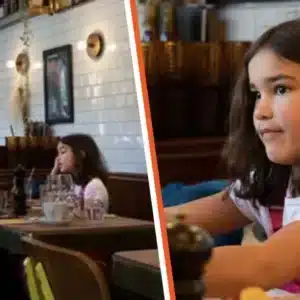I hadn’t spoken to my father in six years when the call came.
“Cara, I’m sorry,” the attorney said softly. “Your father passed in his sleep. Someone needs to take care of the house.”
When the line went quiet, I just sat there, phone still in hand—not because I was grieving, not because I was in shock, but because I wasn’t sure if I even wanted to go back.
Philip wasn’t the kind of father you write poems about. He wasn’t violent. He wasn’t cruel. But he was distant—just enough to leave you wondering if the silence between you was intentional.
He bought bikes for Christmas but forgot my birthday in July. He clapped at swim meets but never remembered my best friend’s name. He was present, technically—but never quite there.
Then, at thirteen, everything cracked. He left us. Cheated on my mom with a younger, shinier woman and walked away like our whole life had been a temporary lease. After the divorce, he faded from my life in slow, painful increments. A lunch here. A late birthday text there. By college, I stopped expecting anything at all.
Our last conversation ended in a storm. He accused me of being ungrateful. I told him he didn’t know the first thing about being a father. After that? Silence.
So, when I pulled into the driveway of my childhood home, keys cold in my hand, I wasn’t there to mourn. I was there to close a chapter. Sweep the dust off a life I didn’t want to carry anymore.
Inside, the house was frozen in time. Shoes still by the door. His favorite coffee mug still cracked in the sink. It was eerie—like he might walk in, humming some old tune, at any moment. But he wouldn’t.
Room by room, I boxed up the remnants. Detachment became a shield. Until I reached the attic.
It smelled of time—old wood and forgotten things. I hesitated, but something pulled me forward. In the corner, a box sagged under its own memories. “Books / Trophies / Random” scrawled in faded sharpie. I lifted the lid.
Swim medals. Yearbooks. A Rubik’s Cube with three stickers missing.
And then… a diary. Navy blue. Stickers peeling. My name, in teenage handwriting, on the inside flap.
I hadn’t seen it in years.
I flipped it open expecting hormonal ramblings and angst-filled rants.
Instead, I found his handwriting.
In the margins, next to my pain, he’d written answers.
“You are not unlovable, Cara. Not even close.”
“You don’t need to shrink to be worthy.”
“I’m proud of how hard you try.”
Each line was a whisper across time. Gentle. Regretful. Real.
Page after page, I found his voice beside mine. His responses weren’t fresh—but recent enough. He’d read it. He’d really read it. Not just once, but deeply. He’d lingered in my heartbreak, and then, finally, answered.
Near the back, I found a broken entry from senior year.
“I don’t know what I’m doing anymore.”
“I feel invisible to the people who should care the most.”
Underneath it, in that now-familiar handwriting:
“I wish I had said these things when it mattered most.”
“I was a bad father, Cara. You didn’t deserve the silence.”
“This was the only way I knew how to talk to you.”
I sat there for what felt like hours, the attic quiet except for my breath and the crackle of old pages.
He had known. All those years when I thought he didn’t see me—he had.
That night, before I left, I scribbled a note of my own on a sticky pad and stuck it to the desk where he used to sit:
I read every word. I heard you.
And for the first time in my life, I whispered, “Goodbye, Dad.” And meant it.
Weeks passed. The house sold. The diary came home with me, resting on my bookshelf between old novels and framed photographs. I didn’t hide it.
Eventually, I found my way to the cemetery. I hadn’t gone to the funeral. I’d told myself I didn’t belong there. But standing at his grave with a small bouquet of wildflowers, it finally felt okay to speak.
“I didn’t come before,” I whispered, kneeling beside the headstone. “But I’m here now.”
I told him about my new apartment. About Jordan, my godson, who just learned how to say my name. About how I sometimes still wished we’d tried sooner.
There was no thunderclap. No cinematic reconciliation.
Just peace.
Philip was never the father I needed. But in the end, he tried—in the only way he could.
And I heard him.
Sometimes healing doesn’t come in loud declarations or grand gestures.
Sometimes it arrives as ink in the margins, long after the goodbye.





